20+ SAMPLE Hiring Proposal
-
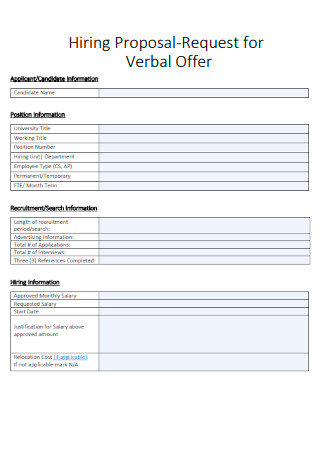
Hiring Proposal Request for Verbal Offer
download now -
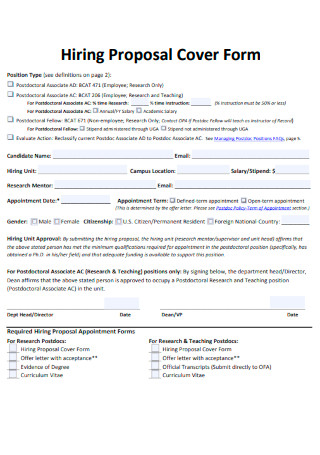
Hiring Proposal Cover Form
download now -
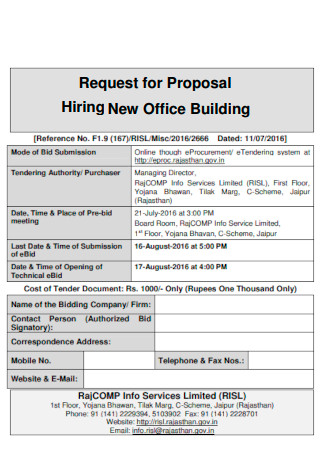
Request for Proposal Hiring New Office Building
download now -
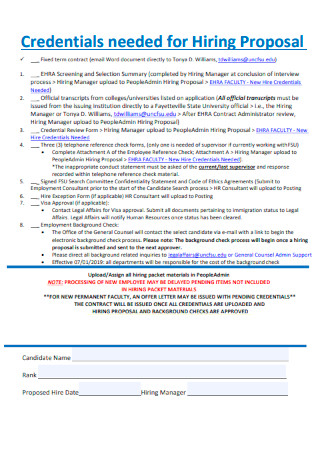
Credentials needed for Hiring Proposal
download now -
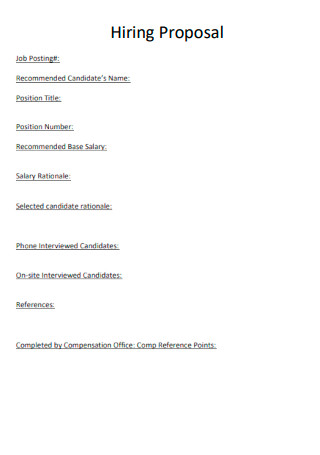
Sample Hiring Proposal
download now -
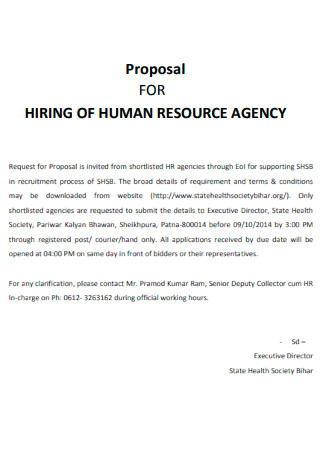
Hiring of Human Resource Agency Proposal
download now -
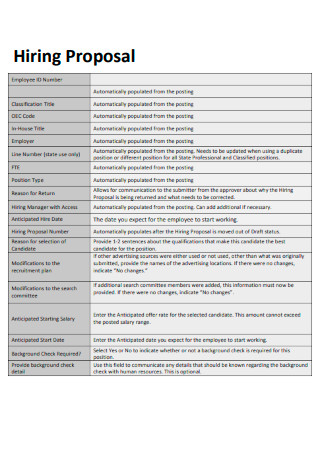
Basic Hiring Proposal
download now -
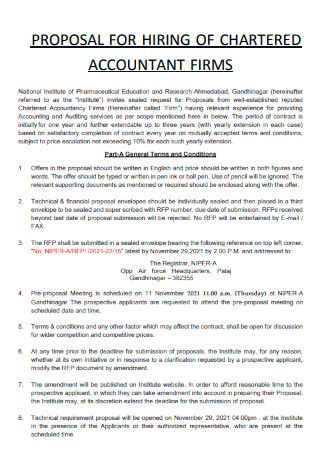
Proposal for Hiring of Chartered Accountancy Firm
download now -
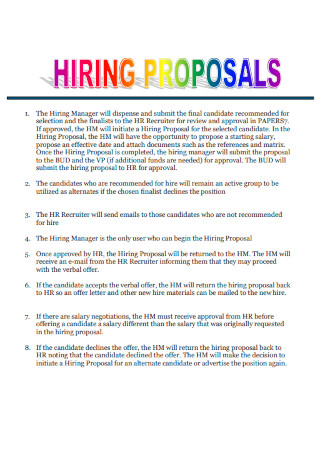
Formal Hiring Proposal
download now -
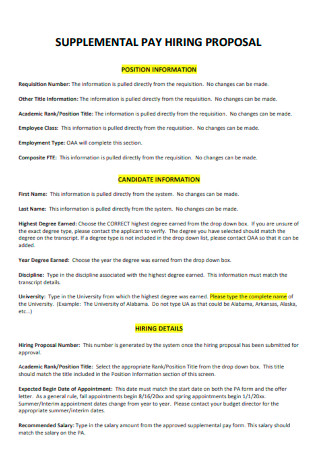
Supplemental Pay Hiring Proposals
download now -
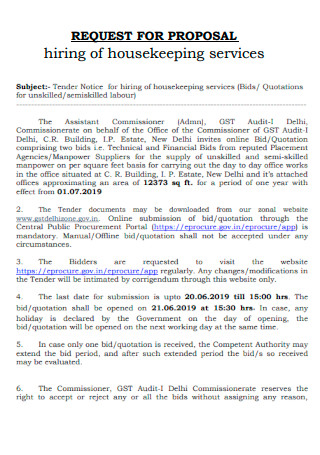
Hiring of Housekeeping Services Request for Proposal
download now -
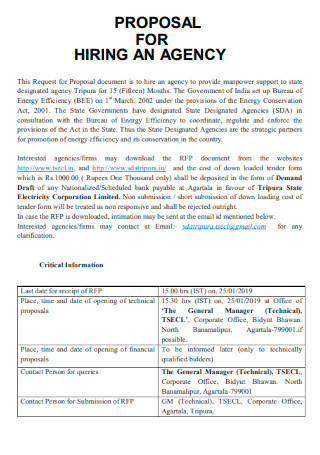
Proposal for Hiring an Agency
download now -
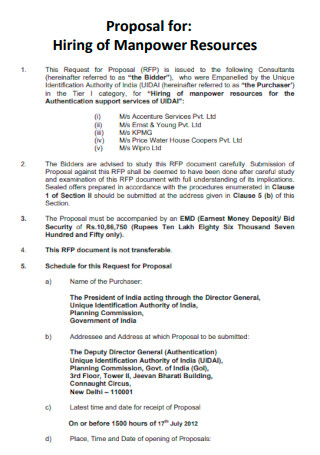
Proposal for Hiring of Manpower Resource
download now -
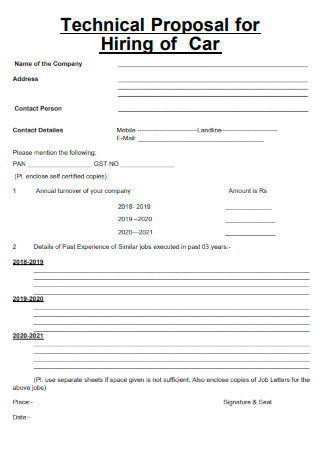
Technical Proposal for Hiring of Car
download now -
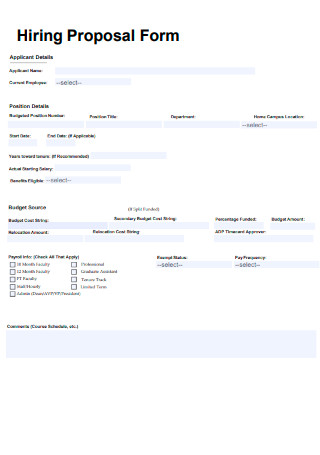
Hiring Proposal Form
download now -
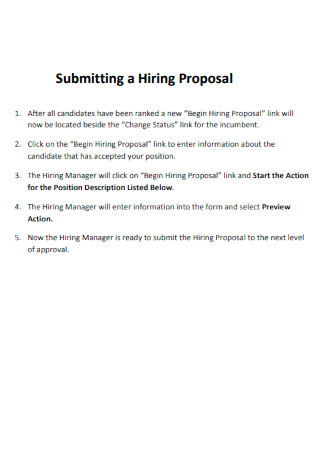
Submitting a Hiring Proposal
download now -
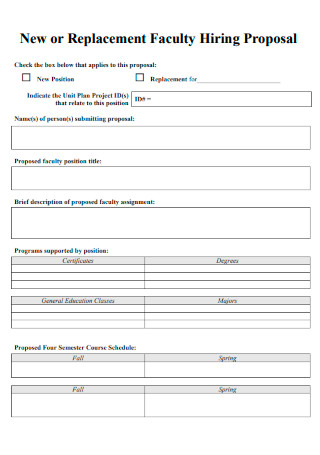
New or Replacement Faculty Hiring Proposal
download now -
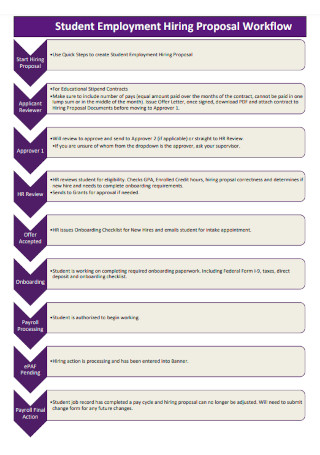
Student Employment Hiring Proposal Workflow
download now -
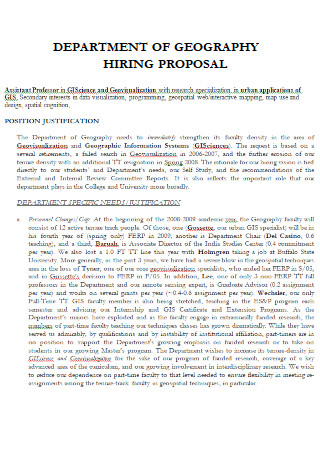
Department of Geography Hiring Proposal
download now -
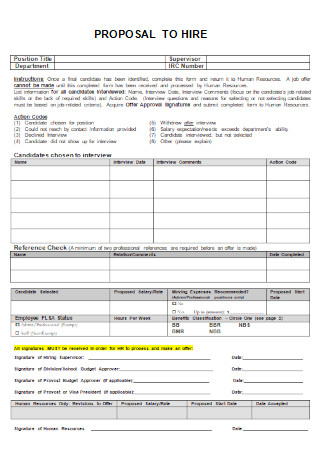
Editable Proposal to Hire
download now -
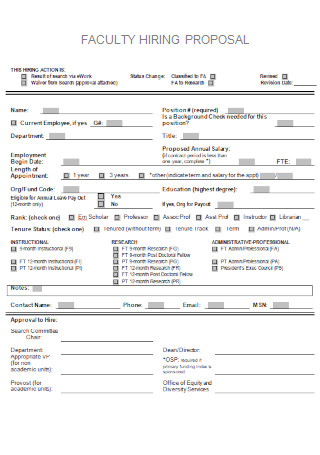
Faculty Hiring Proposal
download now
What Is a Hiring Proposal?
A hiring proposal is a formal and comprehensive proposal that outlines a company’s talent acquisition and recruitment processes. The proposal details the various stages and steps involved in an organizational hiring process.
According to an online article by G2, 67% of recruitment officers deem culture fit to be a decisive factor when hiring a potential candidate. An overwhelming 94% of recruiters and hiring officers say that using recruitment software has positively impacted their recruitment process. The same article also reported that 78% of talent acquisition professionals and hiring managers say that diversity is a top trend impacting the way they hire.
What to Look For in a Job Candidate
There is no such thing as the perfect candidate. However, you want to ensure that the applicant or potential employee is a suitable fit for the company and especially for the job they’re applying for. Although there are many other factors that could influence the hiring process, recruiters, headhunters, and other HR professionals should look for the following criteria when considering a potential candidate.
Hiring Tips for Human Resource Practitioners
It is the task of headhunters and recruitment officers to acquire the right talent for the job. But the hiring process itself can be a complex and challenging task. The following examples are just some simple yet powerful tips for recruiters and HR specialists that may help improve their hiring strategies.
How to Create a Hiring Proposal
To create a hiring proposal, you need to establish a clear direction of where you’re headed in terms of recruitment. And if you are looking for quick but reliable sample templates to use as reference, you can easily download a free sample proposal from the selection above. Choose one that suits your needs and follow the basic steps below.
Step 1: Define the objective
The first step is to set a clear objective. You need to know what the purpose is behind your proposal. Having a goal or objective that you can stick to can help you narrow the focus of your hiring proposal. Whether it is to streamline your company’s hiring process or recruit the best talent, your objective will set the tone of your whole proposal. As much as possible, you want to keep your objective brief and descriptive. You can list as little or as many objectives as needed. But make sure to keep each one short and straightforward.
Step 2: Conduct an Assessment
After defining your proposal’s objective, the next step is to conduct a fair and thorough evaluation of the current hiring process. It is important to have a starting point on where to base your proposed plans and initiatives. You cannot move forward without first acknowledging where you are. Make sure that the overall assessment of your company’s recruitment process is objective, comprehensive and based on facts. For example, if one of your objectives is to improve the turnaround time of processing job applicants, you need to have an idea of the process’ current state.
Step 3: Outline the Plans and Strategies
The meat of your proposal should be the various plans and initiatives that you intend to implement. Whatever proposed hiring plans and strategies you have, be sure that it addresses the objectives that were stated. Good plans are concrete, descriptive, and action-oriented. But they must also be attainable and realistic. Recruitment processes often follow a rigid procedure. Any modification or change to the procedure should promote greater efficiency. There are a number of predesigned templates that are specifically designed to help improve hiring processes and systems.
Step 4: Establish a Timeline
The last step in crafting a hiring proposal is creating a timeline that will enable you to implement your plans accordingly. One way to ensure that your proposed plans are set in motion is to establish a timeframe of when to accomplish each plan or task. In other words, indicate the due dates or deadlines for each phase of your proposal. Keep in mind that having an element of time helps promote a sense of urgency and accountability.
FAQs
What is a hiring proposal?
A hiring proposal is a formal proposal that documents, charts and details the hiring process of a company or organization.
How do you write a hiring proposal?
To write a hiring proposal, you need to establish a clear objective first. Your hiring strategies and initiatives should reflect your goals and objectives. Refer to the previous section for a more detailed instruction guide on how to create a formal hiring proposal.
How do you create a hiring process?
To create a hiring process, you must have a firm grasp and understanding of your organization’s hiring needs. Before you can apply the necessary changes, an adequate assessment and evaluation of the current hiring process is required. It’s important to invest in a considerable amount of brainstorming and collaboration to come up with a comprehensive hiring process.
A hiring proposal is a tool that’s supposed to guide recruiters on attracting the best talent. It should be clear, comprehensive, and action-oriented. Browse the wide selection of sample templates above, pick one that suits your needs, and create your own proposal today!
